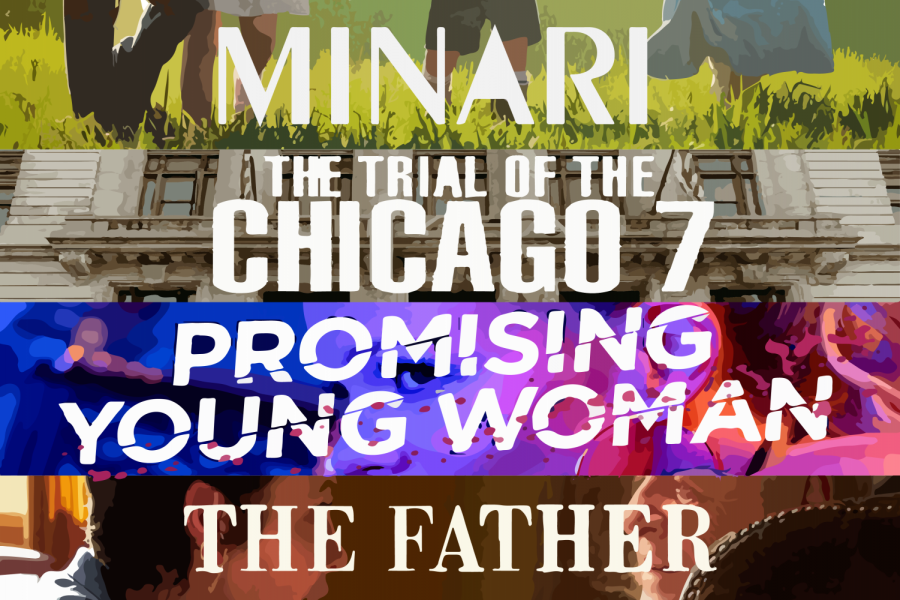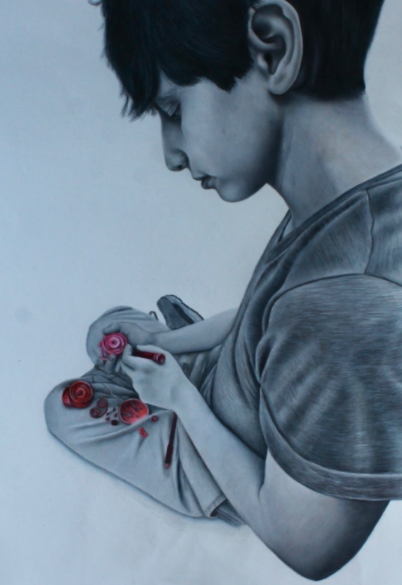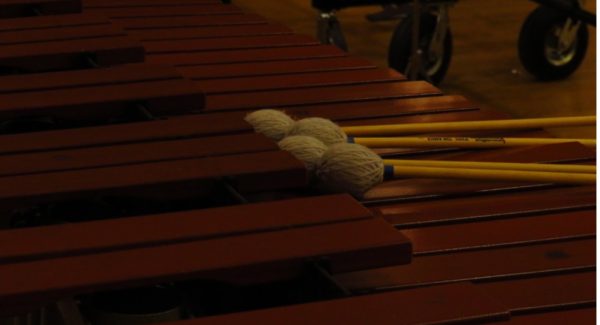Best Picture Preview: Minari, The Trial of the Chicago 7, Promising Young Woman, The Father
The award for Best Picture will be announced at the 2021 Oscars on Sunday, April 25th.
This review is part two of a review for all of the 2021 Oscar Best Picture nominees. If you would like to see reviews for the four other films up for the award, they are available here.
As the Oscars are less than a week away, it’s finally time to review the four remaining nominees up for Best Picture this year. As a reminder, all of these reviews are spoiler-free and give a basic description of the film as well as my opinion. I’m by no means an expert on the Oscars, but hopefully these reviews give you enough information to want to check out the films on your own and decide what you think of them for yourself.
Minari:
After a year of almost no A24 releases, I had put a fairly large spotlight on A24’s newest release, “Minari,” to give me my year-overdue indie film fix. However, even with the hype I had going into the film, my expectations were blown out of the water. “Minari,” directed by Lee Isaac Chung, follows the story of the Yi family, Korean immigrants who move to rural Arkansas in the 1980s in pursuit of the American dream. Partially auto-biographical about Chung’s childhood growing up in Arkansas, the film has an incredible soundtrack, immersive visuals, a handful of stellar performances and, in my opinion, was well worth the wait.

One of the most immediately impressive aspects of “Minari” for me was its amazing soundtrack. I’ve never been much of a musician, but everything about the film’s soundtrack was so creative and unique that it felt like I was listening to someone pour their heart and soul into something truly amazing. Throughout the film, the soundtrack added so much atmosphere to the scenes it was in that I truly can’t imagine what “Minari” would be like without it. Even if you don’t plan on watching this film, I’d highly recommend plugging in some headphones, working on homework and giving this movie’s soundtrack a listen on YouTube. I’ve already listened to it a few times on its own, and I can see myself listening to it countless times in the future. As for other aspects of the movie I loved, the cinematography was up to classic A24 standards. At points “Minari” reminded me of “Midsommar” in terms of its beautiful outdoor cinematography, and overall I thought this film was a great love letter to the outdoors. The entire family’s performances were also pretty excellent. The actor for the youngest member of the family, David (Alan Kim), was great considering his age, and no one in the film ever broke my immersion in the movie. While “Minari” is largely considered a drama, the comedic aspects of the film worked perfectly as well. I loved how the film felt tonally consistent throughout but wasn’t afraid to make you laugh. After “Parasite” and its perfect blend of comedy and drama last year, I’m fully convinced that Korean filmmakers are way better at “dramedies” than anything I’ve seen from directors in the West. Without spoiling anything, the climax of this movie is heartbreaking, beautiful and mesmerizing in all of the right ways. I couldn’t look away from the screen, and I was fully invested in everything happening. By the end of the film, I felt like I was truly a part of these characters’ lives and I was sad to see them go. If there’s any film from this year’s Best Picture nominees which I think will resonate the most with the most people, “Minari” is my pick. From the film’s score and cinematography to its performances, “Minari” is nearly flawless in every way, and in my opinion it’s one of A24’s best.
The Trial of the Chicago 7:
Court movies are a tricky balancing act in my eyes. For every classic like “12 Angry Men” or “To Kill a Mockingbird” there’s a film that is so muddled down by courtroom bureaucracy that even the dullest of attorneys can’t get into it. “The Trial of the Chicago 7,” the latest film from director and screenwriter Aaron Sorkin, is somewhere in the middle of those two extremes for me. Following the “Chicago 7,” a group of defendants who were charged by the United States government after a riot broke out while they were protesting, the film goes in-depth with the group’s trial and the events which caused them to be charged in the first place. Featuring performances from a handful of big-name actors such as Sacha Baron Cohen, Eddie Redmayne and Jeremy Strong, “The Trial of the Chicago 7” is certainly a spectacle, just not one I was especially blown away by.
One of the best aspects of “The Trial of the Chicago 7” to me was its cold open. Right off of the bat, the film felt incredibly streamlined, interesting and fast-paced. I loved the inclusion of real civil rights footage in the intro and I thought it did a great job of emphasizing the true side of the film’s story. Despite all of my interest in the intro, however, right around when the film’s title card came on-screen was when I began to lose interest in what was happening. My biggest complaint with “The Trial of the Chicago 7” is that it feels very weighted down by its courtroom scenes. I understand that the film is a courtroom drama, but that doesn’t mean that it can’t hold the viewer’s interest and make the courtroom setting interesting. It felt like there was an attempt to “liven things up” in the movie with Sacha Baron Cohen and Jeremy Strong’s characters, but almost every joke in the movie fell flat for me. Cohen’s quips were almost always accompanied by a chorus of laughter from the audience in the courtroom, which felt incredibly over-the-top and only existed to remind the audience that they were supposed to laugh. Trust me, if Sacha Baron Cohen isn’t good enough to make your script funny on his own, there’s something seriously wrong with it. I was also annoyed by how much the characters in the film kept throwing quips at each other instead of having natural dialogue. For a movie based on a true story, you’d think it would want to depict real people, not caricatures of real people who are less memorable than the celebrities playing them. I really feel like there is a good story to be told about the Chicago 7 and everything that they went through, but I just don’t think this movie does a good job of it. There weren’t any complex set-ups and payoffs, it just felt like a standard Netflix movie, down to the bland cinematography and score. If you’re incredibly interested in the source material or think this movie would be up your alley, I’d recommend “The Trial of the Chicago 7,” but outside of that, this is easily the blandest film up for Best Picture this year.
Promising Young Woman:
Out of all of the Best Picture nominees I’ve watched this year, none has felt as unabashedly “in your face” as “Promising Young Woman,” the directorial debut of Emerald Fennell. The film follows the story of Cassie (Carey Mulligan), a college dropout in her 30s struggling to cope with a traumatic accident from years prior. Raw and unwavering, the film pulls no punches in showcasing both the struggles of women in modern-day society as well as the lengths people will go to get revenge.
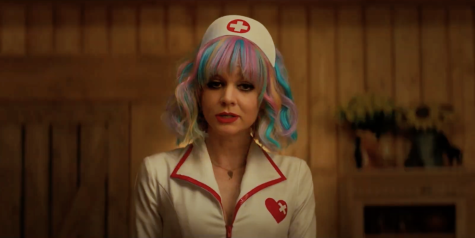
If there was anything that really stood out to me about “Promising Young Woman,” it was Carey Mulligan’s performance. Throughout the entirety of the movie, Mulligan has a fantastic presence on screen, and you can tell that she’s having a lot of fun while performing. Some of the scenes in the movie have an almost self-aware campiness to them and Mulligan does a great job of playing up those deliberately cheesy elements of the film in her performance. I also loved how seamless the editing was in “Promising Young Woman.” The film’s editing really lends itself to the pseudo-comic book vibe that the movie is going for. At points, it reminded me of the editing you’d see in an Edgar Wright movie. It’s almost impossible to talk about “Promising Young Woman” without bringing up a surprisingly similar film from last year’s Oscar season, “Joker.” Both films follow a morally ambiguous protagonist who becomes frustrated with society and does their best to fight back against what they see as injustice. Personally, “Promising Young Woman” worked a lot better for me than “Joker” because of its central message, but in my opinion both films suffer from what feels like lazy writing. All of the characters outside of Cassie in “Promising Young Woman” feel incredibly one-dimensional and boring. There were also a ridiculous amount of clichés in the film to the point where I knew exactly where it was going by the last 30 minutes. Even the “plot twists” were incredibly predictable. My other big gripe about the movie is the performances of the supporting cast. Usually, I love Bo Burnham in things, but he just didn’t work for me in this film. I think it was all of the obnoxious lines he was given, but he didn’t feel like a real person to me at all, which killed the emotional impact of him in scenes later on. In the end, “Promising Young Woman” has a lot of aspects I enjoy, I just wish the script was better fleshed out. The film’s premise is incredibly creative and unique – as well as having a lot of relevance to society today – I just wish it was less reliant on clichés and eye-roll-worthy lines to get its point across.
The Father:
Experimental movies have always held a place in my heart as being incredibly important for furthering cinema as an art form. I love to see directors use films as a way to communicate their feelings, fears about the world and to let their audience see the world from a different lens. “The Father,” the latest film from director Florian Zeller, is one of the most accessible, experimental and altogether impressive films that I’ve seen up for Best Picture this year. Following Anthony (Anthony Hopkins), an older man with dementia living in a flat with his daughter Anne (Olivia Colman), the movie tells a heartbreaking story of loss and grief, almost explicitly from the view of Anthony himself.
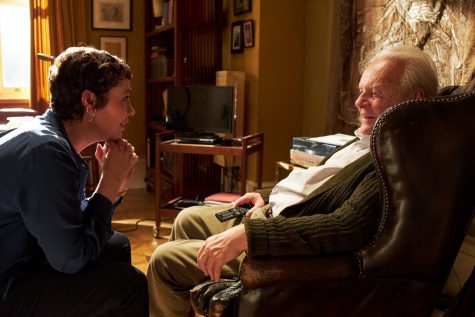
Right off the bat, “The Father” is extremely difficult to talk about without spoiling some elements of it, so if the premise seems at all interesting to you, I’d recommend watching it before reading further. As for the most spoiler-free (and unsurprising) element of the film, Olivia Colman and Anthony Hopkins were both astounding in their roles. As a huge fan of Hopkins’ performance in “The Silence of the Lambs” and Colman’s performance in “The Favourite,” I can say without a doubt that they were unrecognizable as their characters in “The Father.” Hopkins in particular gives the performance of a lifetime, which is saying a lot considering he’s already a living legend. As someone who’s known people with Alzheimer’s in the past, I think Hopkins nails every aspect of their demeanor perfectly. The way you could see the frustration in his eyes after forgetting previous conversations with people was great. Even the way he guilted people whenever they would leave him for a few moments was great. At points, it was scary how accurate “The Father” felt to real life. As for Colman, her dramatic scenes in the film were great, and I loved how much emotional depth she put into her character purely from facial expressions. Without going into specifics as to what makes the film so great, I was really impressed by how “The Father” handled its “unreliable narrator.” While the film’s general idea has been done before in things like “Momento” or “Shutter Island,” “The Father” goes for a very different, more dramatic approach, which I enjoyed. It really felt like a movie equivalent of The Caretaker’s “Everywhere at the End of Time,” (an album meant to simulate the effects of dementia), and I think the film is a great jumping-off point for less-experienced film lovers to get into more experimental cinema. My only complaints with “The Father” are that some dramatic scenes in it didn’t work perfectly for me. Some of the more surrealistic elements came off as a bit over-the-top to me (and resulted in some scenes that felt unintentionally funny), but they probably wouldn’t bother me on a second viewing. Regardless, “The Father” is easily one of my favorite films I’ve seen this year. There are a lot of worthy contenders up for Best Picture this year, but if this film doesn’t walk away with at least “Best Actor” for Anthony Hopkins, I might be eating some Academy members with some fava beans and a nice chianti.
Your donation will support the student journalists of Omaha Westside High School. Your contribution will allow us to purchase equipment and cover our annual website hosting costs.

Hi, my name is Will Eikenbary! I am a Journalism Hallway Coordinator working on Westside Wired this year. I am currently a senior and this is my fourth...

Hi, my name is Abby Schreiber! I am the Design Editor for the Lance this year. I am currently a junior and this is my third year on Lance. If you have...


